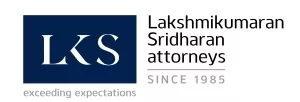- within Tax topic(s)
- in United States
- within Tax and Technology topic(s)
- with Finance and Tax Executives
Recently, in the matter of Addwrap Packaging Private Limited and ANR v. Union of India and Ors., the Hon'ble Gujarat High Court adjudicated upon the applicability of the Notification No. 20/2024-Central Tax dated 8 October 2024 whereby Rule 96(10) of the CGST Rules, 2017 has been omitted. The High Court categorically held that the omission of Rule 96(10) has to be applied prospectively with effect from 8 October 2024 and not with retrospective effect. Further, the Court held that the Notification would be applicable to all the pending proceedings / cases as on 8 October 2024.
Facts in brief:
The revenue authorities had issued show cause notices and order-in-original ('OIO') demanding the recovery of refund already granted to the petitioners for alleged violation of Rule 96(10) of the Rules on the ground that erroneous refund was sanctioned to the petitioners as Rule 96(10) of the Rules restricts the refund of IGST paid on export of goods if the exporter has procured the inputs by availing the benefit of advance authorization. A group of petitions were preferred challenging the vires of Rule 96(10) of the Rules being ultra vires to Section 16 of the IGST Act, 2017 and Section 54 of the CGST Act, 2017.
Key issues under consideration before the Hon'ble High Court:
- Whether the omission of Rule 96(10) of the CGST Rules would be construed as having retrospective effect or is to be applied prospectively from the date of the Notification?
- Whether the Notification, by virtue of which Rule 96(10) of the CGST Rules has been omitted, would be applicable to all the pending litigation / proceedings?
The High Court's decision:
- The Hon'ble High Court held that the omission of Rule 96(10) of the Rules is not curative and remedial and therefore, cannot be applied retrospectively.
- If the omission of Rule 96(10) of the Rules were intended to have retrospective effect, the CGST (Second Amendment) Rules, 2024 would have expressly stated so. Moreover, the GST council has recommended the omission with prospective effect. Therefore, the omission of Rule of the Rules cannot be applied retrospectively.
- The word 'omission' would be included in the interpretation of word 'repeal' and hence omission of Rule 96(10) would amount to repeal without any saving clause.
- The General Clauses Act, 1897, provides that the effect of repealing a statute was to obliterate it completely from the records of Parliament as if it had never been passed, except in relation to actions that were commences, prosecuted and concluded while the law was still in force. Therefore, repeal without any saving clause would destroy any proceeding whether or not yet begun or whether pending at the time of enactment of the repealing act and not already prosecuted to a final judgement.
- The Hon'ble High Court held that Rule 96(10) of the Rules stands omitted prospectively but the same shall be applicable to pending proceedings/ cases where final adjudication has not taken place. The exporters are entitled to claim refund of IGST paid for the export of goods in terms of Rule 96 of the CGST Rules.
- The Hon'ble High Court stated that the question to challenge the vires and validity of Rule 96(10) of the CGST Rules is not required to be considered at this stage. The Hon'ble court quashed and set aside, the SCNs and OIOs.
LKS Comments:
The judgement has provided substantial relief to the exporters, in relation to pending proceedings as on 8 October 2024, from stringent conditions previously imposed for claiming refunds provided under Rule 96(10), Rule 89(4A) and Rule 89(4B) of the Rules. This recent judgement is in line with earlier orders passed by the Kerala High Court in Sance Laboratories Private Limited and Uttarakhand High Court in Sri Sai Vishwas Polymers in similar cases arising from DGGI investigations on refunds claimed by the exporter. Prospective omission of Rule 96(10) of the Rules and its retro-active impact on pending proceedings / cases as on 8 October 2024 has validated the refund claimed on exports with payment of IGST. Even though, the Gujarat High Court has categorically held that the Rule is not omitted retrospectively, the Court granted relief by allowing retro-active applicability on pending matter due to omission without a saving clause. However, the High Court has refrained from commenting on vires of the rule unlike the Kerala High Court and the Uttarakhand High Court.
The present decision of Gujarat High Court would also have a similar applicability for cases where refund was to be claimed under Rule 89(4A) / Rule 89(4B) of the Rules but has been claimed under Rule 89(4) of the Rules.
The omission of Rule 96(10), Rule 89(4A) and Rule 89(4B) of the Rules would benefit exporters by simplified refund procedures, reduced working capital blockages and boosting export competitiveness. Exporters can now claim IGST refunds without the previous limitations, thereby enhancing ease of doing business.
Other batch matters are pending before various High Courts challenging the validity of the rule and implications of the unconditional omission of Rules without a saving clause. The High Courts have given interim protection from coercive recovery of past refunds.
Further, the matter remains unsettled until the appeals pending before the Hon'ble Supreme Court are finally decided. Taxpayers have received a mixed bag of outcomes from Apex Court in the GST era.
An in-depth article titled 'Export refund simplification: Prospective by legislature; retroactive by the courts', can be assessed on our website here, covering legislative background, history of amendments and pending matters.
The content of this article is intended to provide a general guide to the subject matter. Specialist advice should be sought about your specific circumstances.


